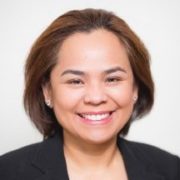IRS audits have been dominated by examination of Schedule C for taxpayers who conduct their businesses as sole proprietors (instead of corporation or LLC). This includes professionals, technicians, and independent contractors who receive 1099s as subcontractors (instead of W2s as employees).
Here are some issues that generate the most dollar assessments & therefore the most interest from the IRS:
1. Unreported income – is checked by comparing reported revenues versus deposits. The Service adds all deposits to all your bank accounts and compares the totals with what you reported as gross revenues on your returns. If you reported $50,000 but deposited $70,000, agents want to know where that extra $20,000 came from. This undeclared excess amount could have come from non-taxable loans or bank transfers. It could also have come from business income that you chose to “hide” by depositing collections to personal or children’s accounts. Remember that the agents are trained to catch these anomalies. They are professionals and will find this rather elementary scheme. They perform a BDA (business deposit analysis) on your business and personal accounts that can easily uncover unreported income.
2. Loan applications – if you submitted an “improved” version of your income tax to a bank for loan purposes, beware. The IRS has a program with banks and the SBA (Small Business Administration by sampling returns that look cute compared to the universe of average returns. The banks can cooperate with the IRS because you signed an authorization (you may not even know it), along with other loan documents, for them to disclose your taxes to the IRS. Be careful. This is a no-win situation. If you stand behind the improved bank version, it becomes an IRS fraud case. If you stand behind the IRS version, it becomes a bank fraud case. Just don’t do it.
3. Personal auto use – do not claim 100% of vehicle expenses. You do use that car for commuting to and from the office, buying groceries, or taking the kids to school, don’t you?
4. Personal insurance – Business-related insurance such as fire and liability coverage on business properties are fine but coverages on personal auto, life, or home are not. Take time to allocate auto insurance among business and personal cars. It also enhances the most important criteria in an audit: credibility. This magic word makes a lot a difference when you are face to face with an agent.
5. Capital expenditures – Some expenses benefit the current year (telephone, supplies) and therefore can be expensed this year. Some expenses benefit future years (car, computers, roof) and therefore should be capitalized and depreciated over three, five, seven years or longer. Agents are on the lookout for equipment with a life of seven years but were expensed in one current year. (TIP: Use section 179 of the Internal Revenue Code to expense equipment – if you need deductions this year)
6. Start-up expenses – for a new business are incurred prior to the time you actually open your doors to customers. Agents look for incorporations costs or market surveys that should be capitalized.
7. Employees versus independent contractors – You have personnel who work under your supervision and control at your business location. You do not want to treat them as employees because you do not want to pay FICA, Medicare, or unemployment insurance. Your personnel also do not want you to withhold federal and state taxes. It is therefore quite tempting not to deduct taxes and therefore treat them as 1099 independent contractors instead of W2 employees. If the IRS or EDD determine that your staffs are indeed employees, you could be assessed for employer’s share of payroll taxes as well as employees’ taxes that you should have withheld.
* * *
Sy Al-os Accountancy Corporation provides accounting and tax services to individuals, corporations, LLCs and business entities. The Firm has a niche in defending taxpayers audited by the IRS and other governmental agencies. The firm celebrates its 38th anniversary in 2015.
* * *
Victor Santos Sy graduated Cum Laude from UE with a BBA and from Indiana State University with an MBA. Vic worked with SyCip, Gorres, Velayo (SGV – Andersen Consulting) and Ernst & Young before establishing Sy Accountancy Corporation in 704 Mira Monte Place, Pasadena, CA 91101. He has 50 years of experience in accounting, consulting, and tax work.
* * *
The Firm proudly welcomes Arlene Al-os in 2015. She obtained her bachelors of Science in Accountancy from Mindanao State University and MBA from Ateneo de Manila University. She teaches intermediate accounting at UCLA and was a professor of Economics at Asia Pacific College. She has over 15 years of experience including member firms of KPMG and BDO Seidman accounting firms.
* * *
Our readers may call (626) 744-0200 or email tax questions to [email protected]. Please visit our website for about 300 tax tips at www.victorsycpa.com.






